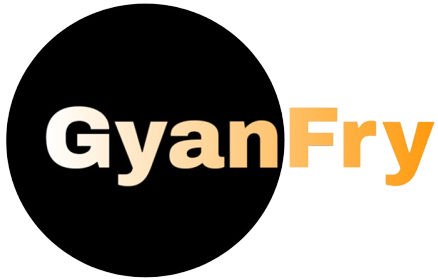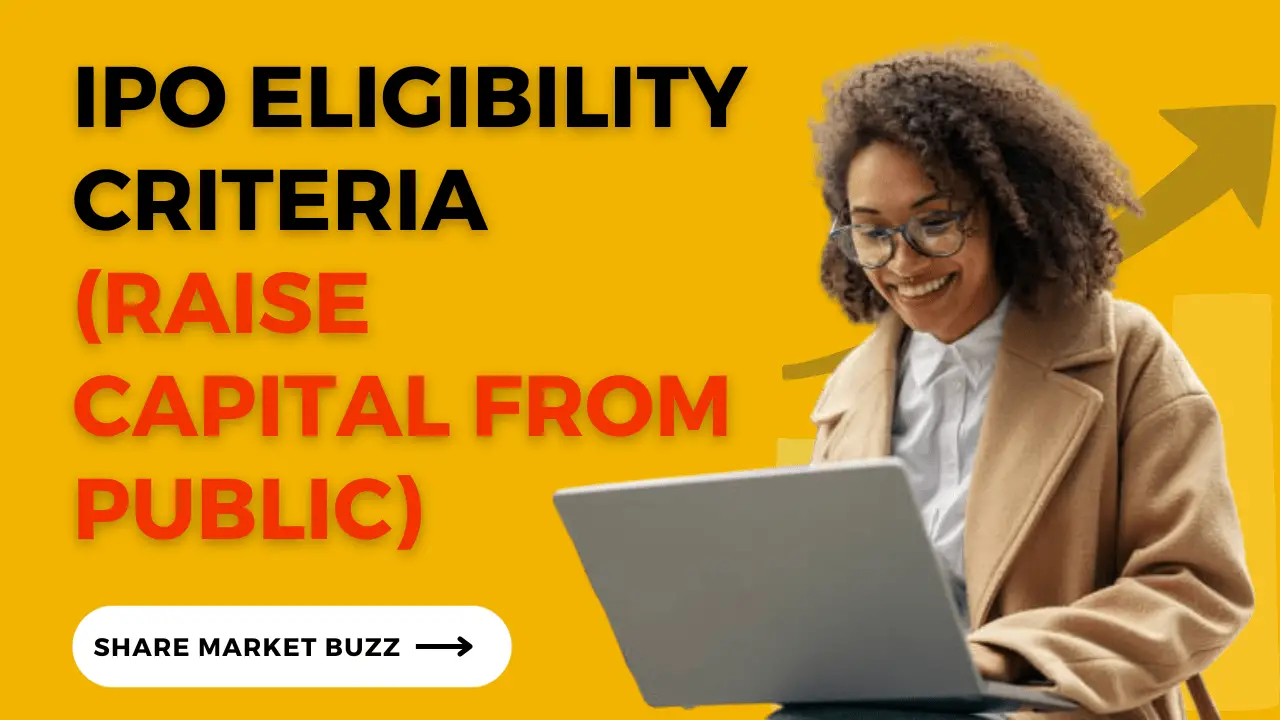An IPO, or Initial Public Offering, is like a company’s grand opening to the stock market. It’s when a private business decides to go public, selling its shares to anyone who is interested via Stock Exchange. But often this process raises the question: Can any company take this step and gather funds from the public? Well, for this we will have to explore IPO Eligibility.
Initial Public Offering is a big deal for the company because it means they can raise a lot of money from the public. Investors can then buy these shares, becoming part owners of the company. To learn more about IPO meaning, you can watch the post down below.
Read More: – What is IPO (Initial Public Offering)? A Share Market Buzz
It’s a way for the company to raise investment capital and for people like you and me it is potentially an opportunity to generate some good returns on investment if the company does well.
But, just like any investment, IPO Investment is not a guaranteed win, so it’s smart to do some homework before jumping in. Now, let’s move straight to the main topic “IPO Eligibility?”
So, Who is Eligible for IPO? What is the IPO Eligibility?
Who can have an IPO? Well, as part of eligibility criteria for IPO in India, a company needs at least seven shareholders, Rs 500,000 in share capital, 3-years of profit and a net worth of at least Rs. 10 crores. They also have to register with the Securities and Exchange Board of India. Once that’s done, the company can apply for an IPO, usually with the help of a bank or stockbroker.
In other words, IPO eligibility means being over 18, having a working bank account with enough money, and deciding whether a company stays private or goes public. Before launching an IPO, a company must meet certain requirements set by the Securities and Exchanges Board of India, like sharing its financial records.
After approval by SEBI, both regular and big investors can buy shares in the IPO and become part owners of the company once it’s listed on the stock market.
The National Stock Exchange (NSE) and the Bombay Stock Exchange (BSE) serve as the main stock exchanges in India. When a company launches an IPO, it means they’re about to become part of either the NSE or the BSE, or sometimes both from where public investors can buy and sell the shares of this company.
Since, listing on SEBI is a prerequisite condition, let’s check out SEBI Eligibility Criteria for IPO first.
SEBI Eligibility Criteria for IPO
As we mentioned, the Securities and Exchange Board of India (SEBI) plays a pivotal role in regulating Initial Public Offerings (IPOs), ensuring a robust and fair marketplace.
And when it comes to SEBI eligibility criteria for IPO, so here are a few most-necessary things to keep in mind as outlined by the Stock Exchange Board of India.
1. Profitability Route (Entry Norm I):
SEBI has established stringent conditions for companies opting for the Profitability Route. The key eligibility criteria include:
1.1 Net Tangible Assets: The company must possess net tangible assets of at least Rs 3 crores in each of the preceding three years. For fresh issues (excluding Offer for Sale), no more than 50% of the Rs 3 crores should be in cash or cash equivalents.
1.2 Operating Profit: The company should demonstrate an average operating profit (pre-tax) of a minimum of Rs 15 crores in any three out of the last five years.
1.3 Name Change Consideration: In case of a name change, 50% of the revenue generated in the previous year should be attributed to the business conducted under the new name.
1.4 Issue Size Limitation: The issue size should not exceed five times the net worth of the company before the IPO.
2. QIB Route (Entry Norm II):
For companies unable to meet the strict profitability parameters, SEBI has introduced the QIB Route. Key considerations for companies opting for this route include:
2.1 Book-Building Process: The IPO must be conducted through the book-building process.
2.2 Allocation to QIBs: At least 75% of the net offering must be allocated to Qualified Institutional Buyers (QIBs).
2.3 Refund Assurance: The company must refund the entire IPO subscription money if the minimum allotment requirement to QIBs is not met.
3. SEBI Requirements for Directors /Promoters /Founders /Investors:
Ensuring the credibility and integrity of key stakeholders, SEBI also imposes strict requirements:
3.1 Disciplinary Record: No disciplinary action should be pending against company founders, promoters, directors, or selling shareholders.
3.2 Barred from Capital Markets: Promoters/directors/founders/investors/issuing company should not be barred from accessing capital markets.
3.3 Affiliation Status: No affiliation with companies excluded from capital market access.
3.4 Defaulter Status: Promoters/directors/founders/investors should not be defaulters.
3.5 Fugitive Offenders: Promoters/directors/founders/investors must not be classified as fugitive offenders under the Fugitive Economic Offenders Act 2018.
3.6 Equity Ownership Post-IPO: Promoters should collectively own at least 20% of the equity after the IPO.
By adhering to SEBI’s IPO eligibility criteria companies can navigate the IPO landscape with confidence, ensuring transparency, and fostering investor trust. SEBI’s emphasis on financial soundness and governance contributes to a robust and secure capital market ecosystem.
NSE & BSE eligibility criteria for IPO in India
Now you might want to check the IPO eligibility and rules on other platforms like NSE, and BSE individually. After approval by SEBI, the IPO shares will be available for trade and investment either on NSE or BSE or Both, depends on their eligibility.
Let’s clear that there are two types of market because now things can get little complicated if you don’t understand it.
- Primary Market: refers to the market where new securities, like stocks or bonds, are issued for the first time.
Example: When a company goes public and offers its shares to the public for the first time through an Initial Public Offering (IPO), it happens in the primary market.
- Secondary Market: refers to the secondary market is where existing securities are bought and sold among investors.
Example: When you buy or sell shares of a company on a stock exchange, like the BSE or NSE in India, you’re participating in the secondary market.
In summary, the primary market involves the creation of new securities, while the secondary market involves the trading of existing securities among investors.
Through IPO, a company is just listed on SEBI. But, the process of entering the stock market in India demands adherence to an additional eligibility criteria set forth by the major stock exchanges, namely the National Stock Exchange (NSE) and the Bombay Stock Exchange (BSE).
Typically, companies pursue dual listings on both NSE and BSE by making payment of prescribed fees while submitting the Draft Red Herring Prospectus (DRHP) to the Securities and Exchange Board of India (SEBI).
But, what is the NSE Eligibility Criteria for IPO or BSE Eligibility Criteria for IPO in simple words? So here’s the answer.
NSE Eligibility Criteria for IPO
National Stock Exchange (NSE) has some rules for companies wanting to launch an IPO in India. Here’s the lowdown:
- Big Money: The company should have had over ₹10 Crores as paid-up capital in the previous year.
- Even Bigger Equity: The equity of the company should be at least ₹25 Crores.
- Following the Rules: The company needs to comply with rules of Securities Contracts (Regulations) Act 1956, Companies Act 1956/2013, and Securities and Exchange Board of India Act 1992.
- Money Talks: The company needs to share its financial details for the last 3 years.
BSE Eligibility Criteria for IPO
Just like NSE (National Stock Exchange) has its listing requirements, BSE (Bombay Stock Exchange) too has laid out certain requirements for a company to get listed.
To get listed on the NSE or BSE stock exchanges, you need to meet certain rules.
- Your company must have at least Rs 10 Crore as paid-up capital after the stock is issued.
- The minimum size of the stock issue should be Rs 10 Crore.
- After the stock is issued, your company should have a minimum market value of Rs 25 Crore.
If the IPO application is rejected, the company has to wait for 6 months before trying again. Yes, there are certain scenarios where IPO can get rejected if anything from the IPO Eligibility conditions isn’t met.
When & How IPOs Can Get Rejected?
Companies must meet certain conditions for their Draft Red Herring Prospectus (DRHP) to be accepted by SEBI, the regulatory authority. The DRHP is a document companies file when they want to go public, outlining their business plan and financial projections.
It’s a crucial step to assess investor interest in the upcoming Initial Public Offering (IPO). SEBI mandates that companies file the DRHP at least 21 days before the IPO launch.
For acceptance, companies need to provide accurate and current information in their DRHPs. Failure to do so, or any material misstatements, could lead to SEBI taking action against the company.
SEBI may reject the Draft Red Herring Prospectus (DRHP) if – as part of IPO Eligibility – any of the following conditions are not met:
- Substantial Changes in Financial Statements: If significant alterations are made to the financial statements or any other information in the DRHP without filing a change report.
- Board Structure Changes: Changes are made to the structure of the board of directors without obtaining prior approval from SEBI.
- Management Changes: Changes are made to the management of the company without obtaining prior approval from SEBI.
- Non-Compliance with Laws: Any non-compliance with applicable laws, rules, or regulations of India or other countries.
- Shareholding Pattern Changes: Changes are made to the company’s shareholding pattern without informing SEBI.
- Change in Company Details:
- Change in the name of the company.
- Change in the registered office of the company.
- Change in the objects and purposes for which a public issue is proposed to be made.
- Any other material change.
Failing to comply with these conditions may lead to rejection of the DRHP by SEBI. If a company faces rejection or fails to adhere to these regulations, consequences may include civil or criminal penalties, fines, potential jail time for company officers, and being barred from selling securities in the future.
Additionally, non-compliance can damage the company’s reputation and hinder its ability to raise capital, as seen in recent IPO failures linked to overvaluation and poor planning. Therefore, staying compliant with the IPO Eligibility is advised.
Final Words
An Initial Public Offering (IPO) is a significant milestone for a company, marking its entry into the stock market and allowing it to raise capital from the public. The eligibility criteria for an IPO in India involve specific financial and operational requirements, as regulated by the Securities and Exchange Board of India (SEBI). Companies must meet stringent conditions related to profitability, net tangible assets, operating profit, and more.
SEBI, as the regulatory authority, plays a crucial role in ensuring the transparency and integrity of the IPO process. It imposes strict criteria for directors, promoters, founders, and investors, emphasizing their disciplinary record, affiliation status, and equity ownership post-IPO.
After SEBI approval, companies can choose to list on the National Stock Exchange (NSE) and/or the Bombay Stock Exchange (BSE). The IPO Eligibility and IPO application process involves submitting a Draft Red Herring Prospectus (DRHP), which must adhere to SEBI’s guidelines.
Failure to comply with these guidelines, such as making substantial changes to financial statements without reporting, altering the board structure without approval, or non-compliance with laws, can lead to rejection by SEBI.
What is the new rule for IPO?
SEBI has just made a big change! Now, companies can get their shares listed in just 3 days after an IPO. This is great news for both companies and people who invest in IPO. The rule will operate for IPOs starting September 1, 2023, and will be mandatory to follow by all companies.
What are the laws relating to IPO?
In an IPO, not even a single shareholder can have special rights. Any special rights for a shareholder are removed when the company lists its shares on stock exchanges.
What are the conditions for IPO in India?
For a company to issue an IPO, it must have a positive net worth, a market capitalization exceeding Rs 25 crores, a post-issue paid-up capital of more than Rs 10 crores, a minimum of 3 years in business, and profits in at least 2 of the last 3 years.
What are new SEBI guidelines for IPO?
A recent rule says that if you own more than 20% of a company, you can’t sell more than half of your shares. And if you own less than 20%, you’re limited to selling no more than 10% of all the shares.
Can I apply 2 times in IPO?
Following SEBI rules, it’s important to know that you can only apply once for an IPO using your PAN Number. Trying multiple times with the same PAN will lead to rejection. Since IPO allotments are often decided by lottery, a suggestion is to apply through different demat accounts in your family members’ names to increase your chances. Keep in mind these guidelines for a smoother IPO application process.






